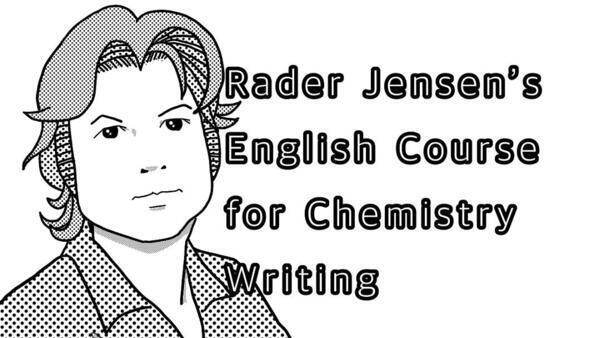[化学論文のための英語講座] 第82回:「Must」と「Have to」 Must and Have to
2025年8月25日

(English version is here.)
皆さん、第25回の助動詞「must」についてのレッスンを覚えていますか?「must」は「しなければならないこと」を表し、義務の意味を持っています。他の助動詞と違って過去形はありません。過去を表したいときは、別の言い方が必要になります。
会話において義務を述べるときは、「must」の代わりに「have to」を言う場合があります。会話では、「must」と「have to」はほぼ同じ意味で使われ、意味も通じますが、微妙に意味が異なる場合もあります。「must」は義務の意味が強く「have to」は必要であるという意味が強いです。「must」は道徳的または法的要件や義務、おそらく自己規律を示唆します。一方「have to」は外部からの影響や物理的事実による行為であり、あることを果たさなければなりません。とはいえ、話すときはニュアンスに関わらず「have to」の方がよく使われます。
例文を見てみましょう。
1. We have to change the reaction conditions.
和訳:反応条件を変更する必要がある。(今までの条件は不適)
2. We must re-submit our manuscript with revisions.
和訳:原稿を修正して再提出しないといけない。(頼まれたか、又は新しい結果が現れた)
否定の場合、すなわち「must not」と「not have to」の場合、意味はだいぶ異なります。「must not」は命令のように「してはならない」という意味がありますが「not have to」は選択可能で「しなくても良い」「する必要はない」という意味があります。
例文を見てみましょう。
3. You must not expose the intermediate to acidic conditions.
和訳:その中間体は酸性条件にさらしてはいけない。
4. You do not have to protect the intermediate from acidic conditions.
和訳:その中間体を酸性条件から守る必要はない。(でも酸性条件から守っても問題はない)
さらに「have got to」や「had better」もよく耳にします。「have got to」は「have to」と全く同じ意味で、「had better」は「した方が良い」という意味があります。どちらも話すときに使うことが多いですが、論文に使っても特におかしくありません。
次回もどうぞお楽しみに。
Do you remember lesson 25 concerning the auxiliary verb must? Must expresses a strong requirement that something be done and has a meaning of obligation. Unlike other modal verbs, there is no past tense. If you want to express the past, a different expression is required.
When expressing obligation in conversation, have to is often used instead of must. In conversation, must and have to are used largely for the same meaning, and that meaning is conveyed, but there are cases in which the meaning differs slightly. Must emphasises obligation and have to emphasises necessity. Must suggests a moral or legal requirement of obligation, or perhaps self-discipline. On the other hand, have to is an action that is caused by external influences or physical realities, something that must be accomplished. That being said, when speaking, have to is more commonly used regardless of nuance.
Let us look at a few examples.
1. We have to change the reaction conditions.
(The conditions up to now have been unsatisfactory.)
2. We must re-submit our manuscript with revisions.
(Revisions have been requested, or new results have appeared.)
In the negative case, that is to say, must not and not have to, the meanings are quite different. Must not is like a command and suggests that something is not allowed, while not have to suggests a choice and suggests that an action is optional and not required.
Let us look at a few examples.
3. You must not expose the intermediate to acidic conditions.
(Negative consequences are implied.)
4. You do not have to protect the intermediate from acidic conditions.
(Not protecting from acidic conditions will not be a problem.)
Have got to and had better are also frequently heard. Have got to and have to have exactly the same meaning, and had better is a strong suggestion. Both are largely used in conversation, but it is not particularly unusual to use either in writing.
We look forward to seeing you next time.